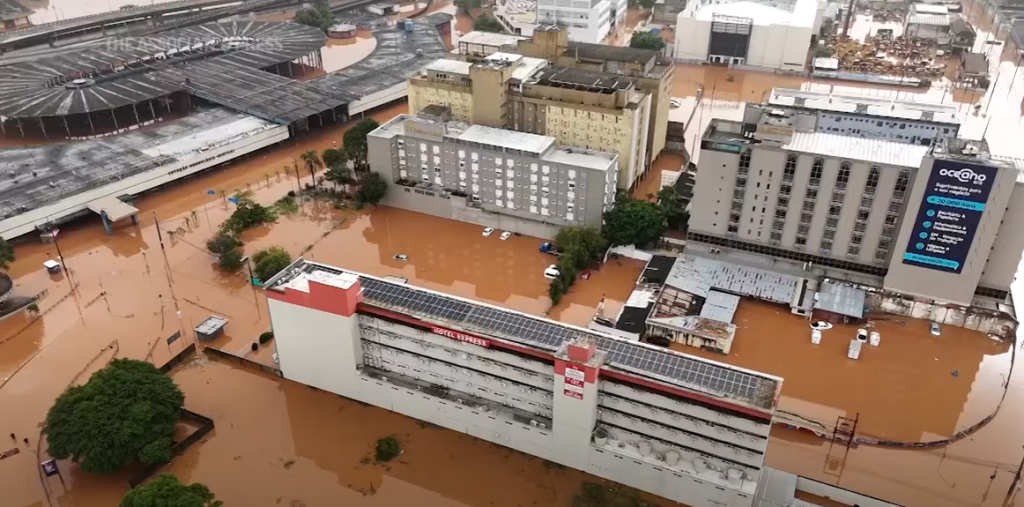The death toll from the floods in Brazil has risen to 90, with dozens still stranded.
Others are reading now
Rescue operations intensified in the southern Brazilian state of Rio Grande do Sul on Tuesday, May 7th, as catastrophic floods continued to wreak havoc.
With the death toll now at 90 and dozens still awaiting evacuation, the region grapples with the destruction caused by unprecedented flooding.
Desperate Situations
In the outskirts of Eldorado do Sul, just 17 kilometers from the state capital, Porto Alegre, displaced residents found themselves sleeping on the roadside.
“We’ve been without food for three days and we’ve only just got this blanket. I’m with people I don’t even know; I don’t know where my family is,” Ricardo Junior told Reuters.
Also read
Rescue efforts have been complicated by the extensive flooding. Small boats navigate the inundated streets of flooded towns, hoping to find survivors or provide escape for those still trapped in their homes.
According to the state’s Civil Defense agency, while the death toll has climbed to 90, an additional four deaths are under investigation.
Currently, 131 people are missing, and a staggering 155,000 have been rendered homeless.
Infrastructure Collapse
The relentless rains began last week, causing rivers to overflow, submerging entire towns, and leading to the destruction of vital infrastructure such as roads and bridges.
In Porto Alegre, which has a population of 1.3 million, downtown streets lie submerged, disrupting daily life.
Residents face shortages as supermarket shelves remain bare and gas stations are closed. The city has resorted to distributing water by truck to hospitals and shelters to mitigate the impact.
The floods have also disrupted water and electricity supply, affecting over 1.4 million people. Almost half a million are without electricity as providers cut power for safety reasons in affected areas.
Long-term Consequences
President Luiz Inácio Lula da Silva acknowledged the severity of the situation on a government television program, stating that the full extent of the damage could only be assessed once the waters recede.
He has pledged federal aid to assist in recovery, describing the event as the state’s worst climate disaster.
Economists from JP Morgan have projected that the floods will cause a modest dip in Brazil’s GDP growth and a slight uptick in inflation, mainly due to rising rice prices—a key crop in Rio Grande do Sul.
The agricultural sector has suffered immensely, with grain fields submerged and livestock perished, disrupting the soy harvest and operations at several meat plants.
Despite the challenges, the Rio Grande port continues to operate normally, as confirmed by the state’s port authority. The port, a crucial node for grain exports, has managed to remain functional despite rising water levels in nearby lagoons and rivers. However, access remains an issue, with main roads impassable, forcing grain trucks to take lengthy detours, according to exporters.


